




Emily
Derek
Law
Simon
Shelina

Kerry
David J. Bilinsky Guest
What’s in a Name?
Rebecca Barclay Nguinambaye
Isabel Jackson, Committee Chair
Editorial Committee
Emma Abdjalieva John Caldwell Demola Okeowo Miranda Wardman Lily Zhang Tonie Beharrell Dan Melnick Salim Visram Özge Yazar
Deborah Carfrae, BarTalk Editor
BarTalk is produced on the traditional and unceded territories of the Coast Salish peoples, including the Musqueam, Squamish and Tsleil-Waututh Nations.
BarTalk is published six times per year by the Canadian Bar Association, B.C. Branch (CBABC) and is available at cbabc.org/bartalk. This publication is intended for information purposes only and is not legal advice.
CBABC supports more than 7,600 members in British Columbia. We connect our members to the people, knowledge and skills they need to successfully practice.
BarTalk enquiries, suggestions and letters to the editor: Canadian Bar Association, B.C. Branch 915 — 700 West Pender Street Vancouver, B.C. V6C 1G8 t:
Membership
© Copyright 2024 The Canadian Bar Association, B.C. Branch
BarTalk Publication Sales Agreement #40741008
In previous columns, I’ve written about what I’ve done to heal from mental illness. For example, I discussed taking time off work, doing counseling and spending more time with family and friends. In this column, I’ll write about what caused me to regain (and retain) my mental wellness.
There are three things that were key to me regaining and retaining my mental wellness: self-awareness, selfcompassion and connection.
I’ve previously written about the wellness program I created with my counsellor. Part of this program included doing some personal growth work, much of which was focused on building curiosity about myself, including my patterns and tendencies. In other words, building self-insight and becoming more self-aware.
I also worked on developing selfcompassion. This is critical, particularly as you grow your level of selfawareness and self-insight. Most of us do not have difficulty showing compassion for others. However, many of us have difficulty extending that same level of compassion to ourselves. We hold ourselves to incredibly high and often unachievable personal and professional standards, and then are very hard on ourselves when we perceive that we have not met them. We also tend to judge ourselves when we feel normal human emotions, such as fear.
Building self-awareness goes hand-inhand with building self-compassion. You cannot truly have one without the other.
How do you gain self-awareness and self-compassion? In my experience, the
key is connection. By connection, I mean meaningful interactions or relationships with other people that are characterized by things like curiosity, authenticity, empathy, safety and vulnerability. As we become more connected with others and become more curious about them, we become more curious about ourselves, which in turn causes us to be even more curious about others, and so on. As connection deepens and walls start to come down, we start to realize, for example, that many of the fears we have are not unique to ourselves, but are in fact shared by almost everyone, which helps us develop self-compassion.

How did self-awareness, self-compassion and connection help me achieve and maintain my mental wellness?
I’ve previously noted that being a closeted 2SLGBTQIA+1 person was a significant barrier to seeking treatment, as I was unwilling to disclose my sexuality to anyone, including treatment providers. The main barrier to coming out was fear. I feared that I would not be accepted by some, and that being openly 2SLGBTQIA+ would negatively affect my career. Connection helped me gain self-acceptance and ultimately the courage to get past my fears and come out, which was the single best thing I did for my mental wellness.
As an articled student, I told myself that I was not smart enough, not articulate enough and that I did not belong at the firm. I was driven by fear.
To compensate for my many perceived deficiencies, I refused to set boundaries — I was going to work harder than everyone else. This approach contributed significantly to my mental illness. Building deep connections with other lawyers helped me realize that I was not alone in having such fears, and that many of us have imposter syndrome. I began to identify and accept my strengths and — with a dose of self-compassion — my areas of weakness. Most importantly, I learned that having fear is okay, but that we can’t be driven by it. Building deep and meaningful relationships with other lawyers — colleagues, fellow volunteers, mentors and even opposing counsel — has been instrumental in my professional growth and is vitally important to maintaining my mental wellness.
I am convinced that the key to addressing our profession’s mental health crisis is connection. The beauty of connection lies in its ability to start a chain reaction. A single connection can lead to multiple connections. So, my question for you is this: who are you connecting with next?
1 The National Study on Wellness in the Legal Profession found that people who are Indigenous, racialized, women, living with a disability or 2SLGBTQIA+ experience psychological distress, burnout, depression or anxiety at levels that are much higher than the general population of legal professionals.
 Scott Morishita president@cbabc.org
Scott Morishita president@cbabc.org
On April 10, 2024, the government introduced Bill 21, Legal Professions Act (bit. ly/bt0624lsbc1), to transform the regulation of lawyers, allegedly to increase access to legal services. As I write this column a mere 30 days later, the Bill is in committee stage and the legislative session will end May 16 with the Bill expected to pass.
Although two years ago the government announced it would move forward with a single regulator and a single statute to regulate lawyers, notaries and others who might provide legal services, the details were only shared publicly on April 10, 2024. We know that the regulators discussed the development of this legislation for most of that two years, and when the legislation became public, the Law Society of BC opposed (bit.ly/bt0624p52) the Bill as it failed to protect the public’s interest in having access to independent legal professions governed by an independent regulator. One can conclude that the government didn’t listen to a lot of what LSBC said about regulation.
CBABC has held multiple engagement sessions with lawyers. We did this after the Intentions Paper was introduced in September 2022, after the Public Update in March 2024 and after Bill 21 was introduced. Throughout this period, our Professional Issues Committee, chaired by Clare Jennings, KC, has been responsible for developing the CBABC submissions to government. The submissions are based not only on members’ views, but also research and review of regulation standards, alternative regulatory systems Canada and the world, and CBA reports on regulatory systems and access to justice.
Attorney General Sharma asserted that the government consulted with CBABC. When the Bill was introduced, CBABC announced (bit.ly/ bt0624p51) that it did not support the Bill. Again, one can reach a conclusion.
While the Professional Issues Committee maintained a dialogue with government, regulators and others throughout these two years, at various points representatives could not discuss the details of the developing legislation. These restrictions prevented developing a mutual understanding of what would be required to achieve multiple important goals: increasing reconciliation with Indigenous peoples, increasing access to legal services, maintaining the public’s access to an independent Bar, creating a single regulator independent of government and modernizing the regulatory framework for the existing regulated professionals.
Being a lawyer is an identity that most of us are proud to hold. How we conduct ourselves, following the Code of Professional Conduct and maintaining professional competency standards, requires more than most understand. It is challenging and demands personal sacrifice. And each of you do that every day.
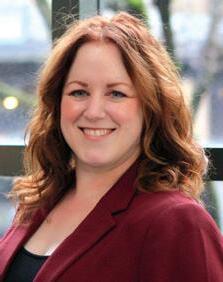
When change happens, even good change, it is stressful. We have to make time to understand, figure out if we agree, propose other ways, reach agreement and adapt. Without that time, the consequence is tension and resistance. With Bill 21, lawyers tells us there hasn’t been enough time with the details. And for those who have been working on this for a while, there hasn’t been enough time to develop mutual agreements to reach a better regulatory framework than we have today.
Without a more collaborative approach in the lead-up to Bill 21, the government created a foundation that enabled conflict upon Bill 21’s introduction. The last 30 days have been difficult to say the least. Relationships which had been built among individuals or entities are now strained. Steps taken to move forward with reconciliation, access to justice or modernization of regulation feel like they have taken a step backward. That is not a good outcome.
Why has this happened? Well, it’s personal. Most people became a lawyer to help people, businesses and institutions achieve their goals.
This issue of BarTalk is about the mental well-being of lawyers. In all our discussions with lawyers, about Bill 21 or other issues, CBABC knows you are constantly adapting to change. Bill 21 represents another change. As we have been doing for the past two years, CBABC will create opportunities for you to know what is happening, and support you in responding to those changes.
 Kerry L. Simmons, KC ksimmons@cbabc.org
Kerry L. Simmons, KC ksimmons@cbabc.org
Does a change in our language make a difference?
As peddlers of words, meaning and nuance — in other words, reading and writing between the lines — we lawyers understand that words are important. They carry weight.
We slice through sentences, parse through words, look out for the “mays” versus the “shalls.” Dancing amongst words is our bread and butter and, for some, a loved passion.
Accordingly, we can appreciate the connotation and effect of mental health versus mental well-being. The former phrase is sterile, punitive, distilling, subject to diagnosis and prognosis. The latter, instead conjures up taking shade under a palm tree, stretching a yoga pose, a bite of cake, a sip of chardonnay, a breath, reprieve, an inner mantra to slow down, you are okay.
If we focused on our mental wellbeing rather than mental health, would we choose differently? Would we be more compassionate and loving toward ourselves and others?
We recognize the importance of well-being. It’s an inclusive phrase. It has positive effects on others in our circles, in our communities, in our firms and courts. Whereas one’s mental health is an inward focus, more solitary, medical/scientific driven, alone — leaving one isolated. Ironically, the opposite of what one
needs when having a mental health or rather well-being crisis.
A crisis of mental health simply does not sound or feel like a crisis of mental well-being.
Am I being pedantic, overly sensitive or naïve? I don’t believe so. The former phrase has an attached stigma to it. This stigma carries weight in a profession that leaves no room for weakness. This, despite the countless conferences, articles and reminders that we should make room for our well-being and to embrace our vulnerabilities. How
our mental well-being. We’re often afraid to speak of it to another, let alone acknowledge it to ourselves.
Perhaps the starting point is adopting more inclusive and compassionate language and permitting this discourse to shape our individual and collective lives.
It’s clear that our words shape our thoughts. We are guided and transformed by our language. This is not mere self-help talk but rather, it’s the essence of our trade, our provision of services to the public. We translate and distill our client’s stories through words. We carefully select the language in our briefs, submissions, correspondence and contracts because our words carry significance.

If we focused on our mental well-being rather than mental health, would we choose differently? Would we be more compassionate and loving toward ourselves and others?
do we do this when we are often tasked with being gladiators in conflict that never seems to end? Many of us remain silent in our deeply personal yet universal struggles with
If we adopt the inclusive terminology of our collective and individual mental well-being rather than mental health, we are consciously selecting a more positive and inclusive narrative and thus changing the often clinical and judgemental narrative on such an important topic. It is even more important in our profession, where we have such significant stressors. In which other profession do we dance with two universal fears of engaging in conflict and public speaking? This in addition to our daily struggles and joys as human beings living in a dynamic world.
In short, our words matter just like our mental well-being.
The psychological strain of repeatedly facing discrimination, prejudice and victimization related to sexual or gender identity or gender expression is harmful to the mental health of 2SLGBTQIA+ individuals, who in turn face disproportionately high rates of mental health issues. (Final Report of the Mental Health Task Force. Law Society of BC, 2023)
This article explores the transformative power of allyship within the B.C. legal profession, particularly its profound impact on the mental well-being of 2SLGBTQIA+ colleagues.
Allyship is not a label but a verb — a continuous process that requires conscious effort and action. It involves standing in solidarity with marginalized communities and actively working to dismantle systemic barriers. It involves using one’s influence to amplify the voices of those who are marginalized. Allyship takes on particular importance in the legal profession, where power dynamics are often starkly evident. Allyship entails lending support to 2SLGBTQIA+ colleagues as they navigate personal and professional challenges.
True allyship involves actively leveraging one’s privilege to advocate for equity-seeking groups. It should not be confused with “performative allyship,” which refers to publicly supporting marginalized groups without genuine commitment or meaningful action.
Allyship impacts both individual wellbeing and the broader culture of the
legal profession. Moreover, allyship drives institutional change, fostering a more inclusive and equitable environment within organizations. Allyship leads to a profession that values the contributions of 2SLGBTQIA+ colleagues. For these colleagues, having supportive allies can be transformative, leading to increased professional growth, mentorship opportunities, and a sense of belonging within the legal community. Allies provide a network of understanding and care, helping to reduce feelings of isolation and stress.
Actively listen to marginalized voices, validate their experiences and include them in decision-making processes.
willing to unlearn ingrained biases and prejudices.
Learn about 2SLGBTQIA+ issues, including terminology, challenges and legal rights. This includes learning about the intersecting issues of race, gender, sexuality, disability and other forms of marginalization. Self-reflect to deepen your understanding of systemic oppression.
Promote inclusivity initiatives such as 2SLGBTQIA+ affinity groups, DEI committees or mentorship programs to create a sense of belonging for all.


Create inclusive environments where everyone feels valued and respected and advocate for diverse representation in leadership positions.
Be familiar with and implement diversity, equity and inclusion (DEI) policies at work.
Challenge biased language, microaggressions and discrimination, and hold leadership accountable for their commitments to equity.
Acknowledge and take responsibility for any harm caused, whether intentional or unintentional. Offer genuine apologies and commit to learning and growth.
Allyship is an ongoing learning process. Be open to feedback and
Publicly support 2SLGBTQIA+ rights and engage in Pride events, pro bono legal work or other advocacy efforts within the community.
Allyship is an actionable commitment that legal professionals in B.C. can make to create a more inclusive and equitable legal profession. By supporting 2SLGBTQIA+ colleagues, everyone can contribute to a workplace and profession that values and celebrates diversity, fosters mental well-being, empowers individuals and promotes a sense of belonging for all.
Emily and Maximilian are executive members of the Sexual and Gender Diversity Alliance Section, which aims to address the needs and concerns of the 2SLGBTIA+ legal community.
Emily: linkedin.com/in/quinn-emily
Max: linkedin.com/in/maximilian-liebrecht
After the Legal Professions Act was introduced on April 10, CBABC asked government to delay passing the legislation to allow more time for all legal professionals and the public to consider the Bill and provide meaningful feedback. The Legal Professions Act was passed on May 16 with only 30 of 317 clauses debated.
CBABC supported some components of the legislation, such as creation of an Indigenous Council, but we believe there are fundamental flaws that should have been addressed. The Law Society of BC has announced plans to initiate litigation and we expect to intervene in that court action. Lawyers can learn more about Bill 21 and our advocacy on this issue at cbabc.org/regulation
The Attorney General agreed the matter is serious and encouraged further contribution on the topic.
We were pleased to see the government recently passed Bill 13, Land Title and Property Law Amendment Act, which enables First Nation registration of land in the Land Title and Service Authority’s Land Title Office. We voiced our support for the legislation, emphasizing that these changes are significant in moving DRIPA forward and therefore require ongoing consultation with stakeholders.

In April, CBABC delivered a letter to the Attorney General, urging the regulation of non-disclosure agreements in B.C. Our members voiced their concerns about widespread misuse of NDAs and the resulting silencing of survivors of harassment, abuse and discrimination.
Join a collective voice to shape the future. Have your say on changes like the Legal Professions Act and court modernization, work to improve legislation, and advocate for access to justice for all British Columbians.
Be a member. cbabc.org/belong
Last October, we delivered a submission to the British Columbia Law Institute responding to their Consultation Paper on AI and Civil Liability. CBABC supported applying the negligence framework to address AI-caused harm but cautioned that limitations of AI technology may disproportionately impact vulnerable populations. In April, BCLI released their Report noting that CBABC members’ input significantly influenced their final recommendations.
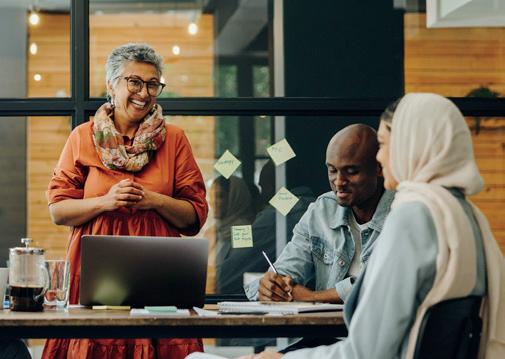
The legal profession is a noble and important part of the fabric of our society. It serves the vital function of maintaining the balance between a society and the individual. I am grateful to be part of this community. We can be of service and be richly rewarded in many ways.
However, it has become apparent that there are some serious problems within our community. Research in the United States, published in 2016, showed a shocking level of distress among lawyers. This was followed up by a major research report in Canada, published in 2022, that confirmed this level of distress and included a breakdown of the types of concerns.
The 2016 and 2022 reports indicate unequivocally that there needs to be a change in the culture of the legal profession. Change is vital, yes, but there is no simple solution. No one person or entity has, nor can have, all the answers, or even all the questions. Culture is complex and deeply imbedded and systems can be quite intractable and self-sustaining.
So, we’re starting a movement to change our culture. A movement that brings all the stakeholders together for a deep inquiry into the true purpose of legal practice and the challenges to individual well-being. Together we can recognize the changes that need to be made, and actively work toward that happening.
We can do it. We have already started on an individual basis and in various
interest groups. We’ve seen enormous changes in the past 30 years. The legal profession is full of people that want to help make society better. By accepting that mental health and addictions are important issues to be addressed, more people are getting help for these problems sooner. Wherever there is a perceived problem there are people and groups who jump in to deal with that problem. Progress is being made in the areas of diversity, equity and inclusion, truth and reconciliation, and we’re starting to support alternative ways of practising law.
A movement brings together people from diverse perspectives to explore, experiment, create alternatives and try out solutions to problems — in this case, to make the legal profession healthier in all ways. The value of a movement lies less in agreeing on strategies or tactics, than in getting as many sectors as possible moving in the same direction, learning from each other and coming up with new creative ideas and ways of being.
This is a call to action. As an individual, you can get informed on issues, advocate for greater support, engage with colleagues to reduce stigma, be mindful of your personal well-being and that of others, talk about well-being, listen deeply to your peers and seek support when you need it.

The Lawyers Assistance Program (LAPBC) helps those in distress and provides education and training to help individuals maintain well-being. But, when these individuals recuperate and return to their work they are immersed in the same dysfunctional culture that caused distress before. The change in the legal profession has to be cultural and systemic.
To keep the movement growing, and to make real, lasting and effective change, we all need to look deeper and broaden our vision to make changes that will impact all the various kinds of issues that are hurting people. Together we can create a kinder, more compassionate, healthier profession that is more productive, more fulfilling and more sustainable.
As an employer you can appoint a Well-being Advocate or Committee, hear and try out their suggestions, provide training and education opportunities, and let people know about resources such as the LAPBC. When we approach change with curiosity and are open to hearing different perspectives, the regenerative energy will energize the entire firm.
The legal profession is a cornerstone of society. As we change priorities and well-being attitudes toward ourselves and others, ripples of compassion and kindness will be felt throughout society. Join the movement today, take personal action and get your group or organization to take action to enhance well-being.
The Law Society of British Columbia has implemented a number of changes in recent years to increase and address mental wellness in the legal profession. As a top priority for the organization, the approach has been to increase free, anonymous resources to support lawyer well-being and to remove stigma about mental health issues from our regulatory processes.
Studies have shown that up to 50% of legal professionals’ experience mental health issues at some point in their lives and careers. However, approximately the same number report a hesitancy to access help, particularly if it’s provided by their regulator. Why? A significant number of people reported concerns that their information would be shared with the regulator. Others didn’t believe that the program would help them, didn’t feel they had time or didn’t know about the resources.
The Law Society aims to address this gap by dispelling myths associated with accessing help. It’s important to note that all the services listed below, available on the Law Society website, are confidential — no one will know that you have accessed them. As well, mental health professionals who offer counselling through these services have ethical and legal obligations to protect your privacy and confidentiality.
We have also expanded the types of support and resources available to legal professionals in B.C. Knowing that everyone has different preferences and comforts around accessing
supports, there are options for in person counselling, online content, one-on-one practice support and much more.
What services are available?
The Lawyer Well-Being Hub on the Law Society website provides a central access point for supports available to lawyers and their families, including easy-to-access resources, videos, tools and information.
The Law Society funds personal counselling and referral services through TELUS Health One. Services are confidential and available at no cost to individual B.C. lawyers and articled students and their immediate families.
for those who experience or witness harassment or discrimination.
New content in the Advice Decision-Making Assistance provides guidance on tackling challenges in your practice and suggests steps and ideas for solving common challenges.
Access to practice advisors who can provide confidential practice and ethics advice and information, except in cases of trust fund shortages.
The Law Society has worked hard over the past six years to utilize an evidencebased approach to remove stigma and bias about mental health issues from its processes. The organization does not monitor, investigate or discipline lawyers on the basis that they are experiencing issues with their mental well-being, or the fact that they sought support. In hearings, accessing mental health support is not something that is held against those facing discipline.

The Lawyers Assistance Program provides confidential support, counselling, referrals and peer interventions for lawyers, their families, support staff and articled students who need help dealing with substance use, stress, depression or other personal problems.
Access to LifeSpeak, a digital wellness platform that offers anonymous access range of resources, including a library of short, digestible videos with actionable tips, live Q&A web-chats with mental health experts, blog posts and guided meditations
Confidential advice and support provided by our Equity Advisor
Efforts to ensure our processes are in line with best practices include removing the consideration of health conditions from admission processes and implementing the Alternative Discipline Process, a pilot program that diverts lawyers who are under investigation from the regular disciplinary process to one focused on the support and management of underlying health issues.
We recognize that lawyers are human beings, each with a unique set of personal and professional experiences. The Law Society is committed to a regulatory approach that recognizes the evolving understanding of mental health and substance use issues and continuing to support the well-being of legal professionals.

Neurodiversity is the idea that there are natural variations in how individuals’ brains operate.
In 2021, Haley Moss, an autistic lawyer based in Florida, put out a book in conjunction with the American Bar Association entitled Great Minds Think Differently: Neurodiversity for Lawyers and Other Professionals. She cites a 2016 white paper put out by the Autistic Self-Advocacy Network (ASAN) which describes neurodiversity as “an umbrella term that encompasses neurocognitive differences such as autism, attention deficit hyperactivity disorder, dyslexia, Tourette’s syndrome, anxiety, obsessive-compulsive disorder, depression, intellectual disability and schizophrenia as well as ‘normal’ neurocognitive functioning.”1 Individuals in the latter category may be referred to as “neurotypical” and individuals in the prior categories may be described as “neurodivergent.” An environment that is “neurodiverse” therefore includes both neurodivergent and neurotypical individuals.
This edition of BarTalk has a mental health theme. As the ASAN white paper would suggest, there is a substantial intersection between neurodivergence and mental illness. However, it is important to distinguish between the concepts of mental health and mental illness; the mental health concerns of someone with mental illness, whether they are practising law or not, may be
different than the mental health concerns of a neurotypical lawyer.
Additionally, one should be careful to avoid categorizing issues of neurodiversity as simply relating to mental illness. One can easily categorize epilepsy as a neurodivergence but, by itself, it is not a mental illness. I am autistic; while my brain can connect concepts together in ways which sometimes require cognitive behavioural therapy, to say my day-to-day problems are mental health or mental illness related would be inaccurate. My day-to-day concerns relate to sensory overstimulation in conjunction with executive functioning impairments, which said overstimulation may exacerbate. While my behavioural “quirks” sometimes relate to me connecting concepts together in ways which would not happen with other people’s brains, more frequently, they are explained by sensory overstimulation.
disability traces back to when postFreudian mental health professionals (such as the infamous Bruno Bettelheim) monopolized the field from the 1940s to the 1970s. While mental health is important, there is a context in the field of autistic employment where invoking mental health issues may not be constructive. This creates an added challenge integrating autistic people into a profession, such as law, where mental health issues are so rampant.

In many cases, these sensory overstimulation issues could be “reasonably accommodated” if they got sufficient space in the existing public dialogue regarding autism as opposed to the social and behavioural impairments which take up much of the oxygen in the room. I would suggest that the understanding of autism as primarily a social
While it is important to avoid the narrative that neurodivergent individuals “have superpowers,” neurodivergent talent has something to bring to the table. Simon BaronCohen theorizes that autistic people are exceptionally able to systemize information. Such a skill brings value to the legal profession. However, there are two key barriers which autistic talent face: firstly, they struggle to get through the door due to misconceptions about their abilities regarding business development; secondly, when they are allowed through the door, their employers run into accommodation issues due to insufficient knowledge about autism and the many different ways in which autism can affect performance. Individuals with other neurodivergences, while they bring additional benefits to the table, face similar barriers.
1 See Jessica M.F. Hughes, Increasing Neurodiversity in Disability and Social Justice Advocacy Groups, Autistic Self-Advocacy Network (2016).
to start a Taxation LLM in August. LinkedIn: Simon Margolis
Self-care and decolonization are intrinsically interwoven concepts, especially for individuals belonging to marginalized communities. While self-care provides a pathway to personal healing and rejuvenation, decolonization challenges the oppressive legacy of colonialism within our societal systems. This article looks at the importance of self-care during the decolonization process, and how it plays a key role in promoting overall well-being and resilience.
B.C. has become the first province to recognize the inherent right of Indigenous communities to provide their own child and family services as a step toward the decolonization process. Indigenous communities will experience new struggles and resistance as they define and develop how they will care for their children. Professionals working in the impacted systems will need to adjust their practice, as they encounter and engage this paradigm shift. Therefore, self-care is essential for ethical practice and to promote the well-being of all.
Decolonization is about recognizing and challenging the colonial legacies imprinted in systems such as child protection and the legal system. It entails a profound transformation in attitudes, understandings and practices, which goes beyond a mere shift in policy. It is about embracing and integrating the rich tapestry of Indigenous knowledge and practices into the existing legal system. But it also requires a deep introspection into the underlying assumptions, beliefs, practices and structures that are products of colonialism.
Dismantling current frameworks to rebuild new approaches will mean aggression, resentment and conflict from those benefiting from the status quo. Resilience and self-care will be a crucial aspect of practice for individuals working to promote a healthy system.
The legal profession is notoriously high stress, with lawyers facing long hours, demanding clients and complex cases. These pressures can lead to psychological distress, burnout, substance misuse and suicidal ideation, even without the complexities of the colonial legacy. Recognizing the mental health issues prevalent in the field, there is a push within the legal community to build resilience and support mental wellness.

Radical self-care is not a luxury, but a necessity. It is also a crucial component of decolonization. When we care for self, we create the ability to be mindful of how our attitudes, emotions and behaviours impact others. By taking care of self, physically, mentally and emotionally, professionals can continue to work toward rebuilding healthier systems. Self-care is often oversimplified as a series of activities aimed at promoting physical, emotional and mental health. However, at its core, it is a complex, multifaceted process of conscious engagement in strategies that promote healthy functioning and enhance well-being.
Self-care is a complex and diverse process involving purposeful participation in various strategies that boost healthy functioning and enrich
well-being across multiple dimensions and aspects of our lives and will be unique to each individual. It is especially crucial for BIPOC individuals who often experience daily microaggressions and macroaggressions, contributing to mental, emotional and physical exhaustion. Decolonization can exacerbate by pushing to the forefront harmful attitudes and belief systems. For this reason, it is equally important for non-Indigenous professionals to be aware of how caring for self translates to reducing harm to others.
The practice of selfcare extends beyond the personal realm; it has significant political implications. Self-care is intrinsically linked to decolonization. It involves questioning the status quo, recognizing the layered societal dynamics that perpetuate self-neglect, and transforming these narratives to prioritize one’s own needs. When we care for self, we can better care for community.
The journey toward decolonization is not an easy one. It requires a transformation in attitudes, practices and systems. But with the right support, resources and a commitment to selfcare, we can make strides toward creating systems that truly serve and reflect the diversity and richness of Indigenous peoples.
Cynthia Fidler, (C.C.C., R.R.M.) is Scottish/ Métis, raised in Regina SK, with family ties to the Red River. She works as a clinical counselor at Hiiye’yu Lelum Society and as a Child Protection Mediator with Mediate BC.
As the 2023-24 term draws to a close, Section Executives are already developing ideas for engaging with our members next term. And the great response to this year’s Call for Volunteers has us excited to welcome new and returning volunteers.
Here are the highlights from our most popular meetings this Spring. And with over 90% of Section meetings held virtually, we reached members from every corner of B.C.
This annual Business Law Section meeting, hosted by Lisa Peters, KC, never disappoints. Over 200 attendees learned case law updates on key decisions, with notes about exceptions to privity, duty of good faith, shotgun clauses and more.

The Senior Counsel Section welcomed Jade Buchanan of McCarthy Tetrault to share how to integrate new tools into your workflow when drafting notes, documents and contracts.
Civil Litigation broadened horizons with a review of how to deal with evidentiary procedure in civil or criminal proceedings presented by Rabjeet S. Wallia of Meridan Law Group and Jeffrey Hernaez of Olthuis van Ert.
The Honourable Justice Neena Sharma, Scott Dawson of Farris, and Chris Moore of McLean Armstrong spoke to the Young Lawyers Sections to uncover the secrets, strategies and tactics to make every word and argument shine in your upcoming applications.
Members of the South Asian Bar Association BC, Federation of Asian Canadian Lawyers BC and CBABC’s Internationally Trained Lawyers Section joined together to host a one-of-akind opportunity for legal professionals from diverse backgrounds. More than 75 attendees broadened their networks and shared experiences with people from around the world.
Missed a meeting? Members have access to review meeting minutes, recordings and materials online anytime, anywhere.
Since January, non-members have enjoyed access to Section meetings by paying a per-session fee. It’s great to see more B.C. lawyers experience our programming before they become a member. Of course, members always enjoy unlimited attendance at Section programs included with their membership... just one of the many ways that membership pays for itself!

Network with like-minded professionals through Sections, access our mentorship programs, or contact a Practice Coach for confidential advice on a specific issue or file.
Be a member.
cbabc.org/belong
The Women Lawyers Forum has been busy this term creating space for women lawyers across B.C. Members heard from esteemed speakers, connected with peers and uncovered new opportunities.

In April, the WLF hosted a candid conversation with The Honourable Justices Jennifer Whately, Anita Chan and Jacquleine Hughes of the Supreme Court of British Columbia. The panel shared personal journeys, including the moments that built their confidence, and the career and personal transitions from lawyer to Justice. Eileen Patel of Patel Advocacy moderated the discussion.
These newly appointed Justices answered questions from attendees, detailing the application and appointment process, key milestones that shaped their readiness for judicial roles and balancing life on the Bench with family.
Special programs like the Hot Tips from Top Mentors, Senior Women Lawyers Dinner, Junior Women Lawyers Networking, the Victoria Monthly Social, the Women Judges Dinner, the Meet & Greet for 1Ls and the WLF AGM continue to bring members together to unite and strengthen the bond of women lawyers in B.C.

The ever-popular Aboriginal Lawyers Forum online auction starts on June 21 and raises funds for the Warrior Project, which supports Indigenous law and articling students. Learn more and place your bids at cbabc.org/WarriorProject.
Why aren’t we already doing it?
Like many lawyers, my life is ruled by my calendar. It incorporates my To Do List and compartmentalizes my life into neat 15-minute blocks. It contains work tasks, admin, client meetings, networking events, errands, appointments, social engagements and sports practice times. But, until recently, what was missing was a timeslot devoted to mental wellbeing. Now, I schedule this into my day and respect the commitment like it was a 12-person board meeting booked six months out.
Mental well-being is an oft-discussed topic, across all ages and demographics, but in many professions such as law it’s still a badge of honour to over-work and overcommit. Most are familiar with the “go to’s” for promoting mental well-being and reducing stress: exercise, get outside, spend time with family/friends, pursue a hobby. We can search the right key words to collect suggestions, so why aren’t we doing them?
One answer may be that we’re critical of ourselves for consciously not doing the things that boost our mental well-being, so we become paralyzed by guilt and inertia. Selfcare is just one more thing for the To Do List, another chore at which we potentially fail. When you find time to fill out your Gratitude Journal, it fails to make you into your best self. And that makes us feel worse, not better. We’re not
#doingselfcare right, or at all, and that’s bad.
It can also feel inauthentic. Bath salts and scented candles may feel like commodified, faux self-care to some — the junk food, shallow version of mental well-being. If that’s you, acknowledge that being told to sip herbal tea or forest bathe feels condescending or even infuriating. For some, just the suggestion that we “need” self-care has negative implications.
It may help here to develop curiosity about your patterns. If you notice self-judgment or criticism, ask why that is your default response — explore why something feels challenging, without judgment. Inquire who or what is benefiting from patterns you know aren’t healthy. Observe the coping strategies you use and
is nothing wrong with you for being affected by it. Being honest about what is happening, i.e., “admitting it,” can be the first step. Likewise, cutting down on all the “should” can be helpful to boost mental well-being.

There is nothing wrong with baths or tea if they work for you. But to truly promote our own mental well-being, we need to recognize that it’s not one size fits all. Seek out-of-the box solutions, explore ways of reframing your thinking, abandon socially constructed wellness ideals. Try different activities to de-stress until one feels right. Work on your goals with others if you benefit from accountability and team motivation. Involve and connect with other people. Accept help. Exchange cheerleading with someone who shares your goals. Focus outwardly on community instead of inwardly if that feels more authentic. Recognize it’s not a quick fix and that patterns change over time.
Commit to mental well-being in small, incremental steps.
Commit to mental well-being in small, incremental steps.
ask yourself if they could be substituted for something that would have more benefit for your mental well-being — something that feels right for you.
It can also help to validate that life is stressful. We all experience stress, and we’re all affected by it and there
Ultimately, this was what worked for me. Just as there is “death by a thousand cuts,” there is mental wellness by a thousand small choices. No grand gestures, retreats, workshops or high-end wellness products — just the cumulative effect of building the habit of choosing to boost mental well-being, without guilt. One calendar appointment at a time.
Marta Davidson practises franchise law at Embarq Law, a practice group of Bojm,
and Lisa Shopland-Black, MC, RCC for their suggestions and advice.
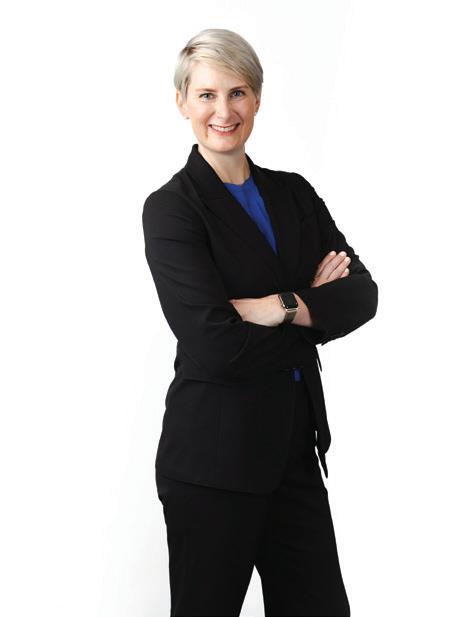
Koffman Kalef is pleased to announce that Holiday Powell has joined the firm as Counsel in the Litigation/Arbitration/Dispute Resolution practice group.
Holiday maintains a general litigation practice with an emphasis on commercial and corporate law matters, including cross-border litigation, and has experience appearing in mediation and arbitration proceedings. Holiday was called to the British Columbia Bar in 2022, and the California Bar in 2006.
Visit kkbl.com to learn more.
In the spirt of this issue’s theme of mental wellbeing, the Continuing Legal Education Society of BC is pleased to share recordings from the recent Mental Health Forum for Legal Professionals that took place on June 23, 2023 (Part 1) and February 6, 2024 (Part 2).
Co-hosted by the Law Society of BC and CLEBC, this two-part event brought together the legal community to advance the conversation on mental health in the legal profession.
The event centered on strategies for enhancing personal mental health and practical approaches for practitioners, firms, and other legal employers to actively improve mental health within their organizations and the broader profession.
The specific topics discussed in Part 2 were directly informed by the questions and feedback received from attendees of Part 1 of the forum, ensuring that the speakers addressed the issues most relevant to the audience.
The gathering proved to be a pivotal step in continuing the conversation on mental health in the legal profession. It highlighted the importance of continued engagement and discussion to drive positive change collectively.
To view these recordings, and all other lawyer wellness and well-being resources provided by CLEBC, please visit: cle.bc.ca/ lawyer-wellness-and-well-being-resources
“Ding.”
The toll of the never-ending notifications
Imagine getting an email notification from your lawyer — when working, attending to your young children, caregiving to elderly family members or just finally having a moment to yourself after a very long day.
If you’re self-represented, the bold font staring at you from your phone’s email notification will state the name of opposing counsel, with a subject line that highlights your last name in a format looking like “A.B. v. C.D.”
Most would find these email notifications stressful. In fact, I had a self-represented opposing party once request that I only send him correspondence on Mondays within specified hours.
In an article titled, “Anticipating and Managing the Psychological Cost of Civil Litigation,” published in the Windsor Yearbook of Access to Justice on February 14, 2018, authors Michaela Keet and Heather Heavin reviewed existing literature on litigation stress.
“The direct financial cost of civil litigation — and how that impacts individuals and social systems — has dominated the access to justice policy agenda for the last several years... Until very recently, studies on the costs of civil litigation have therefore centred on these actual legal costs and direct financial outcomes, with less consideration for the social and psychological dimension of the process.”
Inevitably, litigation brings stress and anxiety. This psychological distress is heightened during critical stages of the lawsuit, including examinations for discovery, court applications and evaluative expert reports.
Litigants experience anxiety that may manifest itself in physical symptoms, such as headaches, sweats and muscle tension. Importantly, Keet and Heavin identify disruption to cognitive processes that may impair decisionmaking, affecting the eventual outcome of the lawsuit.
The authors encourage lawyers to help clients prepare for the emotional burdens of litigation with improved information and communications, alternative dispute resolution processes and collaboration with other professionals.
health professional. In fact, some can afford neither, and the psychological burden may need to be overwhelmingly carried by their personal support group.
The Keet and Heavin article gives examples of how the legal process may affect a litigant’s personal relationships. Some have needs to talk about their experience that exceed the patience of friends and family. Others may have a sense of embarrassment that shrinks their social circle.
In an interview with CBC’s The National (bit.ly/bt0624jw1), after being found not guilty in the death of Constable Jeffrey Northrup, Umar Zameer was quoted as saying, “I felt so relieved. This is the first time I went home, hugged my kids, without any burden on my shoulders.”

“We are trying to move on. I don’t think we can. I can’t stop thinking about them (the family of Officer Northrup) whenever we see our kids smiling, happy.”
While stress is universal for all litigants participating in an adversarial process, those who retain counsel will have the assistance of a professional to provide guidance and education, involving mental health or other professionals when appropriate.
Unfortunately, for litigants who have limited financial resources, they may not have the funds to retain both a lawyer and a mental
The Keet and Heavin article calls for increased awareness of the psychological impact of litigation.
“The protective value of law must not be outweighed by the psychological or emotional expense of enforcing such rights.”
There is wisdom to continue conversations about designing dispute resolution processes with better focus on the importance of litigants’ mental health.
We have money for you — and your clients, too
In fact, we have money waiting for 1 in 42 British Columbians. Where does this money come from? You might be surprised to learn that much is from litigation and estates. We have $65 million in monies that were paid into court and left unclaimed, including $30 million received since 2022. Whether in civil or family cases, or pursuant to a restitution order, funds become dormant after five years with no action and may be transferred to us. We do our best to find the parties and alert them, and anyone can do a free search, in seconds, at BC Unclaimed (bcunclaimed.ca) to see if we have funds in their name. These funds can be significant — last year we paid out a court fund claim of $2 million. Altogether, there is over $218 million unclaimed in our database.
Of that, our unclaimed estate holdings are approximately $78 million. Excluding funds from the Public Guardian and Trustee, we have $11 million for confirmed deceased owners. This averages $5,700 per claim, from assets seemingly overlooked when estates were settled. These funds are often discovered when a family member searches the name of a deceased relative. Credit union accounts, insurance payments, unpaid wages and benefits, real estate deposits, closed pension benefits, securities and more comprise many forgotten funds. Our oldest unclaimed estate dates to the 1850’s, and our largest unclaimed property is a $1.9 million estate.
In an era where constant vigilance against scams is prudent, many potential claimants do not respond when we advise there may be funds for them. They have not heard of us and are wary. As trusted advisors, this is where the legal profession can be influential. Let your staff and clients know about BC Unclaimed, check our website for funds (how many can say their lawyer found them money?) and if you coach or advise executors, ask if their asset inventory checklist includes a search on BC Unclaimed (bcunclaimed.ca).
While our services are free, costs can be incurred claiming court funds. A court order is required if entitlement to the money paid into court is undetermined. This poses a challenge for many claimants when the sum is modest. To respond, we are working with People’s Law School (peopleslawschool.ca) to create selfhelp resources and make referrals to free legal service providers. We are grateful to the court registry staff who are often a claimant’s first stop for information, and to those assisting claimants, including the Justice Access Centres, Access Pro Bono, Amicus Curiae and the TRU Community Legal Clinic among others. With the significant volume of funds transferred from the courts in 2023, many
claimants are now coming forward who need help getting a court order. The funds they recover may pay the next month’s rent or perhaps the groceries, and in these inflationary times, that makes a real difference.
In addition to reuniting funds with their rightful owners, we put unclaimed funds to work across B.C. through our partnership with the Vancouver Foundation. Unclaimed funds support diverse initiatives from arts programming to food security, environmental conservation, Indigenous led initiatives, and emergency housing for refugees. We are only able to make this social impact with the support of the myriad organizations who get dormant assets off their books by transferring them to us. This in turn relieves them of their obligations under the Unclaimed Property Act. To learn more about our services, see Why Submit Funds (bcunclaimed.ca/submit/why) on our website, our Annual Report (bit.ly/ bt0624bcu1), or reach out directly.
Sherry MacLennan, Executive Director of BC Unclaimed, is excited to unlock dormant assets to enrich communities and lives.
LinkedIn: Sherry (bit.ly/bt0624bcu2)
BC Unclaimed (bit.ly/bt0624bcu3)
Blog: What’s New at BC Unclaimed (bcunclaimed.ca/news)

Artificial Intelligence (AI) is pervasive across various industries, from medical diagnostics to finance, to streamlining tasks and aid decision-making. However, instances of AI causing harm are widespread, including cases such as chatbots offering dangerous advice or driverless cars hitting someone. What legal consequences should follow when AI injures individuals? In April 2023, BCLI released the Report on Artificial Intelligence and Civil Liability to offer answers to this question and others regarding civil justice in cases involving harm caused by AI.

AI systems, designed to operate with varying degrees of autonomy, rely on probabilistic inferences based on the recognition of patterns in data, which may not be accurate, complete or representative. How they arrive at particular decisions and other outputs is not always explainable. This creates challenges when applying tort law to address harm to individuals and property caused by autonomous AI actions as the rules were crafted to handle harm caused by humans.
Our report explores AI’s impact and challenges for tort law, legal theories on civil liability, standards and good practices for AI development, and recommendations for adapting the law of tort to the context of AI-related harm tort law. Read the report at the BCLI website bcli.org/project/artificialintelligence-and-civil-liability-project


Early last fall, I logged onto my LinkedIn account to find my feed inundated with posts sharing commentary about one story: the tragic death of Vanessa Ford, a partner at Pinsent Masons, a big law firm in the UK. Ford fell onto a railway line in East London and was struck by a train on September 23, 2023, after consuming a “significant” amount of alcohol and undergoing what the coroner’s inquest had described as “an acute mental health crisis.”
In the weeks prior, Ford had worked around the clock leading up to the sale of the Everton Football Club to a US private equity firm. She was the only woman on the team closing that deal. A mother of two, her husband described that she had been “wracked with guilt” over missing time with her two children. Before her death, Ford had left a note at home that expressed a “degree of helplessness” and had attempted to contact a mental health professional to discuss her mental health and alcohol consumption. The coroner could not conclude whether Ford had intended to take her own life.
Over weeks, reactions to this news story flooded my feed. The posts expressed profound grief, outrage, calls for cultural and structural change, and resounding support for lawyers facing similar pressures at work. Women, in particular, shared stories reflecting upon how Ford’s story resonated, how the feelings
of guilt and perfectionism were all too familiar.
The following is not news to anyone: lawyers, in general, are more prone to mental health issues, including depression, anxiety, stress and substance abuse. These issues are strongly linked with an increased risk of suicide. Overcommitment and loneliness are also significant factors contributing to psychological distress, burnout and exhaustion among lawyers. (Krill et al., 2023).
In recent years, employers have taken note. Legal workplaces have increased their focus supporting mental health and wellness among lawyers and staff. Corporate yoga sessions, in-house training on topics related to mental wellness, generous fitness budgets, counselling allowances, and mindfulness apps are in abundance. These efforts are laudable, but the 2023 ALM Mental Health Survey of the Legal Profession still paints a grim picture of the state of mental health among lawyers. Somehow, things seem to be getting worse.
lack of trust among lawyers who may approach their firms for help. Despite a more open approach to mental wellness, the lawyers surveyed were no more comfortable approaching their firms for help or using mental health and substance abuse programs offered to them by the firm. They reported being hesitant to make use of extended leave policies or even vacation time for fear of negative consequences. An hour spent at a firm mental health lunch and learn workshop is one less hour on the billable clock.
At a systemic level, addressing the root causes of mental health issues within the legal profession requires a fundamental culture shift within law firms. There is no mindfulness app that can fix a prevailing ethos of overwork and perfectionism underlying the mental health crisis among lawyers.

Vanessa Ford did not raise any issues related to stress or work-life balance to the firm, her manager has said. She had access to a 24-hour mental health helpline. She did not use it.
The survey, which encompassed nearly 3,000 lawyers globally, asked questions about their mental wellness and how it related to their firm’s policies and culture. While there was some appreciation that law firms have seemingly made strides to destigmatize the topic of mental wellness, there remains an overarching
While the news of Ford’s death is undeniably grim, reactions to this story have been powerful and the calls for change have reverberated throughout the legal community. Maybe, just maybe, this will be a catalyst for transformative change the profession is so desperately calling for.
Sources: Krill et al (2023), Stressed, Lonely and Overcommitted: Predictors of Lawyer Suicide Risk (Healthcare (Basel) 2023 Feb 11; 11(4):53)6.
Roshni R. Veerapen is an associate at Harper Grey LLP in the Health practice group.
ANONYMOUS
When I read that a classmate died by suicide, in between feeling sadness for their young family, and regret for not making an effort to reach out, I was feeling envious; they had the courage to finally ease their pain. I live a few degrees below suicidal ideation, caught somewhere between wanting to live and while not necessarily always wanting to die, definitely more often not wanting to live.
If you knew who I was, you may be surprised to read this. I have a wonderful family. I have a well-paying job. I am involved in the profession, the community and with my children’s activities. I am physically active. At first glance, I have a lot of good things going for me. Yet, I have a steady stream of thoughts of not wanting to live.
I have never attempted suicide. I’ve thought about jumping in front of trains since I was in high school. I am a walking encyclopedia of celebrities who have either died by suicide — Robin Williams, Chris Cornell, Kurt Cobain, Twitch — or have attempted it — Billy Joel, Drew Carey. And if a method was shared, I would burn it to memory.
But that’s it. I don’t make any effort to copy any of their methods, or do anything more than just having these passive thoughts of not wanting to live. Sometimes the thoughts can be stronger, especially earlier in my career when I suffered a major setback.
I love my family. I miss my children when I travel for work. Even that
does not dull these suicidal ideations. I feel really guilty that I do have these thoughts when my children tell me they love me or hug me.
Logistics are a bigger roadblock than the negative impact my death would have on my family. Doing it at home or in the car would only add to the trauma my family would face. Drug or alcohol abuse would take too long, and could have even more negative consequences before I get the result I want. The biggest risk of all is if I made an attempt to die by suicide and it didn’t work, and I lost the use of my legs. I wouldn’t be able to volunteer with my kids’ hockey team.
In Alcoholics Anonymous or other twelve-step programs, members volunteer to set up and run meetings, or act as sponsors. The idea that by being of service to others, it takes the member out of their own head and puts a focus on others. The equivalent for me would be to volunteer at a crisis hotline. I don’t because I worry that hearing about other people’s suicidal thoughts would give me ideas that I haven’t thought of, and these thoughts would be more than just passive.
Approximately 24.1% of Canadian legal professionals have had suicidal thoughts since beginning their professional practice. Sometimes I think that figure is too low. Our profession has high incidents of mental health issues and substance abuse, which
makes me think that there would be much more than one in four who have had suicidal thoughts or ideations. The funny thing is when I go to a legal industry event, CBA Section meetings, firm functions, etc. and I see everyone else engaging in conversations, laughing and enjoying themselves, I think that I’m the only one having suicidal thoughts.
After your initial appointment at BC Cancer after a diagnosis, you complete a survey. If you answer “yes” to the question about suicidal thoughts, someone from BC Cancer calls you. I had to assure the agency that I had those thoughts for a long time and it was not because of my diagnosis. I am honest with anyone who asks; I just don’t advertise that I have these ideations.
It is not as if I’m not doing something about this. I am on medication, I see a counselor and use the Lawyers Assistance Program of BC (lapbc. com) when appropriate. I try to get regular exercise (which studies show is one of the best antidepressants).
A lot of these feelings stem from loneliness. I didn’t grow up, go to law school or article here. I don’t really have a natural base of a social network.
I’m not writing this so you can feel sorry for me. I’m very unlikely to attempt something. I wanted to share something that not a lot of people are comfortable talking about openly, and to reassure the rest of the 24.1% that you’re not the only one who feels that way. And maybe, by writing this, these ideations may eventually fade away.
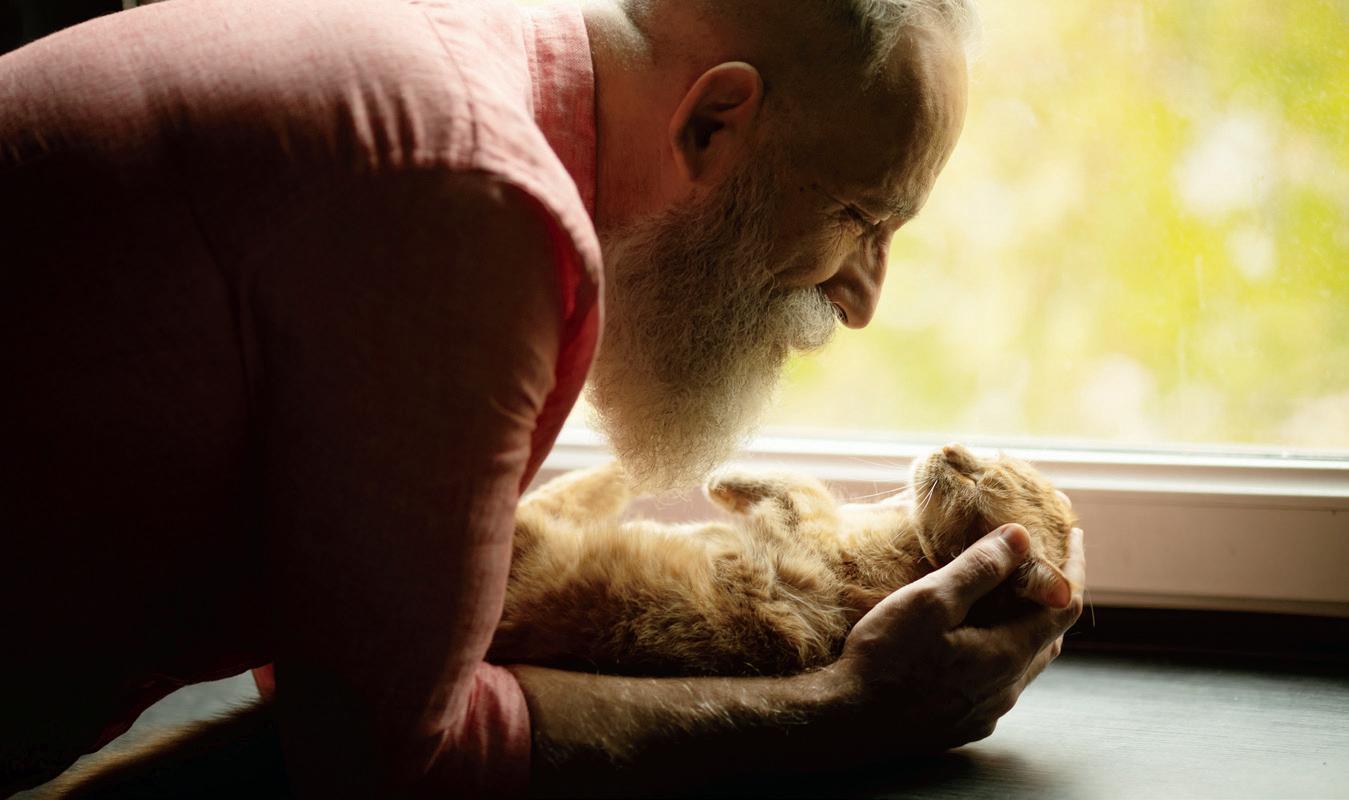




r Try to see it my way
Only time will tell if I am right or I am wrong
While you see it your way
There’s a chance that we might fall apart before too long
We can work it out... r
— Music and Lyrics by Lennon and McCartney, recorded by The Beatles.
The B.C. government has introduced Bill 21 which, if passed, will amalgamate lawyers and notaries, expand the role of paralegals and create an Indigenous Council in a far-reaching bill ostensibly focused on enhancing access to justice. In the process, it will drastically change how lawyers will be regulated, with some stating that the bill will undermine legal independence and self-regulation.
When reading between the lines, one can palpably feel the frustration of the government in trying to deal with the vexing problem of making legal services more affordable. When legal fees are $300-600 per hour, consumer-facing legal services (family, criminal, wills and estates, small claims and the like) are simply beyond the reach of a large slice of the Canadian population, particularly at a time when the public is expressing dismay at the high cost of living. The growth of self-represented litigants is certainly not a new phenomenon in the courts of B.C.
The government has granted the Law Society and the Notaries the opportunity to come up with solutions. Either they have run out of
patience or out of time with their progress to date, or alternatively, they have decided to ride the wave that is changing how the legal profession is regulated world-wide.
In an article entitled, “Non-Lawyer Legal Services: An International Roundup” (2017, Merrow and Dusseault (bit.ly/ bt0624pt1), it states: “Australia and the United Kingdom are experimenting with new regulatory systems in an effort to make legal services more accessible. Both have adopted innovative systems that allow non-lawyers to be involved in running legal practices or law firms.” It continues: “the UK also structures its licensing process differently, licensing eight different types of legal profes-
business structures are seen as a way to expand the range of actors who can provide legal services and, in turn, increase competition and hopefully reduce costs.

Furthermore, Jeffrey Church in “Defining the Public Interest in Regulatory Decisions: The Case for Economic Efficiency,” states that: “It is time that governments across Canada refocus regulators with an explicit and singular mandate to improve economic efficiency.” (C.D. Howe Institute 2017 — bit.ly/ bt0624pt2). Although the paper focuses on the energy sector, the alignment of what is in the “public interest” with economic efficiency is clear.
The debate over how to modernize the legal profession will continue to be carried on, perhaps in
the courts.
sionals: barristers, solicitors, notaries, patent and trademark attorneys, costs lawyers, and a group who function similarly to paralegals.”
Certainly, the types of changes adopted in Australia and the UK with regard to non-lawyer ownership of law firms and alternative
Perhaps we have come to the end of an era and are witnessing the birth of another. The dust has not begun to settle over this dispute. The debate over how to modernize the legal profession will continue to be carried on, perhaps in the courts. We will see if the government and the law society can work it out.
The views expressed herein are strictly those of David Bilinsky and do not reflect the opinions of the Law Society of British Columbia, CBABC, or their respective members.
David J. Bilinsky is the principal of Thoughtful Legal Management, a technology and practice management consultancy and is the former Practice Management Advisor, Law Society of British Columbia.
Email: daveb@thoughtfullaw.com Blog: thoughtfullaw.com
It’s simpler to pronounce than it looks — although the myriad ways people have attempted to pronounce my last name is mind-boggling. Correct pronunciation and, even more so, genuine efforts to correctly pronounce someone’s name signals respect. Further, many of us have names or surnames that form part of our lineage — purposefully mispronouncing them is disrespectful to our ancestors, heritage and traditions. It can also be discriminatory and, in some instances, rooted in racism (we can think of how right-wing pundits in the US purposely mispronounce Kamala Harris’s name).
Just like I have modified my 11-letter last name (Nguinambaye) to a phonetic seven letters (Gi-num-by) in this article, many of us are forced to adapt or anglicize our names to make them easier to say for monolingual English speakers, usually white. The anglicization of non-English names is a form of identity erasure; often dismissing a fundamental aspect of a person’s cultural identity. Dealing with mispronunciation and a lack of effort to correctly say our names is therefore doubly harmful and othering.
On February 2, 2024, the South Asian Bar Association of BC, the Federation of Asian Canadian Lawyers (BC) Society and CBABC published a letter (bit.ly/bt0624rbn1) on name pronunciation sent to B.C.’s chief justices. The letter provides a thorough description of the harms of name mispronunciation and why changes
should be introduced in our justice system. In March, the courts acknowledged the importance of correct pronunciation and communicated the letter’s contents to B.C.’s judges.
Mispronouncing someone’s name is not funny and should not be made light of; not trying to correct yourself says, “I don’t value you.” If you don’t know how to say someone’s name, ask them for the correct pronunciation and make every effort to say it correctly. Integrate this into your cultural humility practice to nurture curiosity about and appreciation for others. Be patient and respectful. Although your effort is always appreciated, you might be the third person this week, or even this day asking someone for the correct pronunciation of their name, a foundational and fundamental aspect of their identity. If they do not respond with eagerness, be understanding rather than frustrated.
put myself into minor discomfort so that you can be comfortable.” I assume in response to the February letter, the guidelines for change will help remove the awkwardness.

Another gesture that senior lawyers especially can do to help normalize the importance of pronunciation is to spell their names for the court even if it is a “simple” name or one frequently heard in the dominant culture. Just like with pronouns, having everyone participate helps dismantle the idea that there is a standard and if someone does not fit it, they are “other” or inconvenient. It is up to all of us to normalize and celebrate diversity. The February letter emphasizes this point by suggesting that judges apply new policies to all participants so as not to single out Indigenous and racialized people.
I am grateful to the judges and associate judges who have already started this practice. Although it can be a little awkward for both parties, I appreciate every instance where a judge has followed my introduction with a request to hear my last name again and make a note on how to say it. The meaning behind this gesture is “You are welcome here. Even though you are still underrepresented, I am taking this opportunity to make space for you and
Nguinambaye means “the Lord binds me” and though this may not be where I find meaning, my name is important to me in that it connects me with my father’s family in Chad. I do use this surname for my ancestors and my living relatives. I also admire the people in my life who have had the courage to revert to their true names after spending years and sometimes decades with anglicized identities. I look forward to continuing to encounter people with their own name stories and origins. I hope you do too and that none of us miss an opportunity to pay respect to that part of someone’s identity.
This article is part of a 4-part series on issues CBABC members face as BIPOC lawyers. Rebecca Barclay Nguinambaye (she/her), sole practitioner/Legal Aid BC vendor.
Practising mediation is taxing. It requires attentiveness to the conflict’s emotional depth, navigating legal complexities and attunement to power dynamics. Juggling these demands, while remaining self-aware, focusing on the present moment, and thinking about next steps, can strain both our mental faculties and emotional reserves. Practising without replenishing can lead to compassion fatigue, burnout and vicarious trauma. Technology and the constant flow of information and communication adds another layer of complexity.
Fortunately, there are many ways in which we can support longevity and joy in our mediation practice:
1. Self-care, Boundaries, and Time Management: This work is demanding, so prioritizing selfcare is crucial for longevity in conflict resolution. Incorporate daily grounding practices like breathing exercises, regular breaks between meetings and walking outside. Weekly or monthly activities such as walks, hikes, spa treats or fun brunch dates can provide deeper revitalization. Establishing clear boundaries, such as not engaging with clients over the weekend, helps prevent burnout. Recognize the value of your time and avoid overcommitting! And while technology can aid in relaxation (mindfulness apps, music and fun distraction), be aware it
can potentially exacerbate stress (endless scrolling or immediate responses to messages).
2. Resiliency: Resiliency is the ability to bounce back from setbacks, adapt to difficult situations and navigate obstacles without being overwhelmed or giving up. Sometimes, the unexpected happens — your new workplace is unexpectedly dysfunctional or even toxic, there are changes to your family structure, a dear friend needs your support. You find yourself in the midst of transition and change. Mediation
3. Self-compassion: Many of us in the “helping professions” are adept at practising compassion toward others, yet do not give that gift to ourselves. As lawyers we are trained to be critical and evaluative and as humans our brains are biased toward negativity (likely a survival mechanism that evolved to detect potential threats and dangers in the environment). Becoming aware of the systemic and individual contexts that shape us and choosing to practice


Practising without replenishing can lead to compassion fatigue, burnout and vicarious trauma.
is often a second career, often for lawyers transitioning away from litigating. When this happens, it’s crucial to pause, gather support, and determine what’s best for you. These situations serve as opportunities for growth and allow you to flex your resiliency muscles.
being less self-critical and more kind to ourselves, can be life shifting. Consider finding support, such as like-minded friends and colleagues, support groups and counselling, to help cultivate selfcompassion. Practice a little every day until it becomes easier.
Taking the time to consciously build and practice these skills will help you cultivate a healthier relationship with yourself, your friends and family, and those your serve — ensuring your longevity and joy in conflict resolution!
Shelina Neallani RSW LLB enjoys workplace mediations, assessments and coaching.
LinkedIn: linkedin.com/in/ shelina-neallani-5b0a5759
Yuki Matsuno LLB MC enjoys mediating, facilitating and conducting workplace investigations.
LinkedIn: linkedin.com/in/ yuki-matsuno-she-her-0646762
Legal professionals working in the not-for-profit world face significant stressors on their mental health. The legal system is often a high-stress environment, and non-profit workers face the additional challenges of assisting an ever-increasing number of people who are often dealing with multiple traumas in their lives. These combined pressures underscore the critical need for mental health supports for legal professionals, so that we may all continue to offer the best possible legal help to British Columbians.
The Law Foundation of BC has helped strengthen the availability of these resources by creating a Mental Health Supports program for the community legal service providers whose services it funds. Those eligible may include community legal advocates, staff lawyers, support workers and articling students. Through the Mental Health Supports program, eligible individuals who step into these Law Foundation-funded roles may access up to $2,500 each year to fund eligible mental health supports that assist them in carrying out their important work.
Although the Law Foundation recognizes that people have diverse needs and values the diversity of ways that people engage with mental, emotional and spiritual well-being, at this time, reimbursement through the program is available for expenses related to mental health professional support services such as those provided by a counsellor or social worker. In recognition of the importance of traditional ways of healing based on cultural practices, expenses for seeking guidance and support from Elders or other community-knowledge keepers may also be eligible for this program. Questions about eligibility of an expense or participation in the program can be directed to counselling@lawfoundationbc.org
In 2023, nearly 30% of qualifying individuals accessed the program. The Law Foundation is very happy to be able to provide this additional resource for the dedicated professionals who carry out vital access to justice work for people in B.C.
TIPS FROM
In the decade since the CBA’s Well-being Subcommittee commissioned its 2012 Ipsos Reid survey on lawyer wellness, the mental health landscape for legal professionals has evolved significantly. The 2020-2022 Université de Sherbrooke’s National Study on the Psychological Health Determinants of Legal Professionals in Canada reveals that while stress and burnout remain critical issues, modern stressors such as technological overload (“technostress,” including fear of being replaced by AI), job insecurity and the effects of the COVID-19 pandemic have intensified the challenges faced by lawyers.
Courthouse Libraries BC (CLBC) is not only about books and databases (even innovative offerings like free access to CSO E-search which, as of this year, lets you view dockets and download various court records at no cost). We support mental well-being of legal professionals through our 30 locations — havens of calm and focus. Consider the comforts of “bibliotherapy”— using books to boost well-being. One of our books, “Trauma-Informed Law: A Primer for Practicing Lawyers and a Path to Resilience,” delves into intersections of trauma and law, plus where trauma is often denied, ignored, covered up or avoided. It’s written for lawyers and those in the legal system, to enhance resilience and improve legal practice.
Also check out the Lawyer Depression Project (lawyersdepressionproject.org). They offer a bibliotherapy reading list for legal professionals, with titles that address mental well-being. Books like “The Anxious Lawyer” (Cho & Gifford) provide mindfulness practices tailored for the legal profession, while “The Introverted Lawyer: A Seven Step Journey Toward Authentically Empowered Advocacy” empowers introverted or anxious individuals to achieve without compromising their quiet nature
Work bibliotherapy into your self-care, explore CLBC’s collections, and use our spaces to retreat from the daily grind
Achild who is deemed to possess the cognitive, mental or developmental capacity to exercise their legal right to consent to treatment, may make their own health care treatment decisions independent of their parents’ or guardians’ wishes. In B.C., there is no set age when a child is considered capable to give consent. Children are able to make their own health care and mental health decisions in B.C.
The UN Convention on the Rights of the Child (CRC), in Article 12 provides that State Parties shall assure to the child who is capable of forming his or her own views the right to express those views freely in all matters affecting the child, the views of the child being given due weight in accordance with age and maturity of the child.
An important aspect of Article 12 is that it addresses developmentally appropriate participation of children and youth while it recognizes young people as having the capacity to make meaningful decisions. While parents and legal guardians have responsibility over children below the age of majority, in practice they ought to give due consideration to the child’s voice in accordance with their developmental capacity in keeping with CRC Article 5 that concerns evolving capacities.
The interpretive clause concerning evolving capacities is embedded
in both Articles 5 and 14.2, which inform interpretation of participation rights. The notion of evolving capacities involves the progressive exercise of a young person’s rights and responsibilities appropriate to their age and stage of development. The inclusion of this clause gives recognition to the developmental nature of how children come to experience rights to participate and responsibilities.
In 2009, the United Nations body issued the General Comment No. 12. It was stated that considerations need to be given to provide for ways of inviting young people to participate in health care decisions, enabling them to express their views and influence decision making in ways that provide for their best interests.
in A.B. v. C.D., 2020 BCCA 11, at para. 137, which held:
The Infants Act has made it clear that health care professions, not judges, are best placed to conduct inquiries into the state of medical science and the capacity of their patients when it comes to questions of minors’ medical decision-making

The Infants Act section 17 states that children have the legal right to consent to a medical treatment on their own as long as a health care provider is sure that the treatment is in the child’s best interest, and that the child understands the details of the treatment, including risks and benefits. It is up to the health care provider to assess and ensure the child’s understanding of the treatment. The Infants Act defines “health care provider” as a person licensed, certified or registered in British Columbia to provide health care.
The Infants Act provides a legal right for a child who has been assessed as being a mature minor to consent to treatment in the absence of parental consent. In the event a child’s parents are separated, decision making with respect to giving, refusing or withdrawing consent to medical, dental and other healthrelated treatments for a child is subject to section 17 of the Infants Act as per section 41(f) of the Family Law Act.
Section 17 of the Infants Act was interpreted by the Court of Appeal
Research shows that there are multiple benefits to involving children in decisions about their health, empowering children to participate in healthcare decisions is crucial for their overall well-being and mental health, and it promotes selfadvocacy skills.
Children have unique knowledge about their lives, needs and concerns and taking their views into account in decisions that impact them enables them to make better, more informed decisions.
Acouple of years ago, I was in the lineup at Save-on-Foods, Safeway or Superstore (I can’t quite remember). The lineup was getting long, and the customers were getting edgy because there weren’t enough cashiers. The manager came out and politely suggested that “ self-checkout was available. ” One woman said, “ no thanks... I don’t work here.” The manager urged the woman not to be afraid of the selfcheckout counters and praised how easy they were... “ Even my mother uses them,” said the manager. “ I’m not your mother,” she quipped.
But the exponential growth of selfcheckout counters at large retail and grocery stores has led to an exponential growth in, you guessed it, shoplifting! Who knew that would happen? With a larger percentage of people being forced to use self-checkout tills (because retailers are hiring fewer cashiers to reduce their labour costs), more people are finding ways to shoplift — either by not scanning their items at all or using the code for carrots but bagging more expensive items that don’t have barcodes. Others simply walk out with the items, pretending to have bought what they’ve stolen. This has led to staff checking receipts on the way out of the stores, angering customers who don’t like being thought of as thieves. As for the thieves, they simply blame the technology if they’re caught.
I’m not sure anyone is feeling particularly sorry for our oligopolistic grocery industry because their cunning plan to replace workers with machines is going off the rails. What did they expect when they
converted from checkout counters run by human beings to self-checkout counters run by... well, us? What’s next? Unloading our vegetables from the truck? Cutting our own meat? If we don’t see any monetary benefit to our grocery bills by using self-checkout counters, why use them? And sometimes they just don’t work and staff have to help with the scanning. Seniors, like me, despise self-checkout machines with a luddite passion. Frankly, I’d rather deal with a human being, even if the wait is longer.
Although they can be convenient for some people, (and in fairness, some people like them), self-checkout machines aren’t paid anything, so they don’t pay taxes like other employees do. They don’t contribute to the economy by buying other goods and services, nor do they contribute to the Canada Pension Plan or Employment Insurance. All they do is allow the big retail chains to rely on us (and the machines) to do the work taxpaying employees could be doing. It might help their bottom line, but it doesn’t help ours. And this is a huge issue as automation and AI take over more and more of our lives and our livelihoods.
monetary incentive to pump their own gas instead of paying the “full-service” price. So why hasn’t the grocery industry figured this out and provided consumers with a meaningful discount on all food and other products purchased through their self-checkout tills? Why don’t they give consumers a discount for doing the work their employees could be doing?
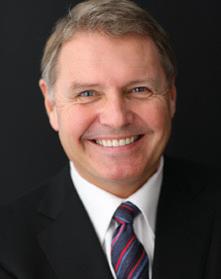
Given the severe uptick in shoplifting, negative public perception (particularly among seniors), and customers rebelling at having to show receipts on the way out, some Canadian Tire and Giant Tiger locations in Ontario have removed self-checkout machines in their stores. More chains may remove them altogether. Unfortunately, to further reduce the need for human cashiers, new technology is being developed that will replace normal checkout tills as well as self-checkout tills. The system will instantaneously scan all your purchases as you leave the store in one fell swoop and charge your credit card without you ever seeing a cashier... or a machine.
How I hate the 21st century.
If pigs could fly, the federal government would find a way to tax selfcheckout tills based on the sales of each machine. Retailers might be incentivized by the tax to hire more workers and mothball the machines. But a more realistic idea is to learn from the gas station industry where consumers are provided with a
Tony Wilson, KC is a Vancouver Franchise Lawyer, a Life Bencher of the Law Society, and an Adjunct Professor at TRU Law School. Over the past two decades, he has been a regular columnist for The Globe and Mail, Canadian Lawyer, and other publications. This is his 21st year writing “Nothing Official” for BarTalk, and as everyone should know by now, the opinions expressed in “Nothing Official” are his alone and do not reflect the views of the Law Society, the CBABC, or their respective members.



Rachel Wood joined Harper Grey as an associate with their Health Law, Professional Regulation and White-Collar Crime groups. Rachel was called to the B.C. Bar in 2021 and was previously with Peck and Company in Vancouver.
Bar Moves space is at a premium and available for free to members on a
first-served basis, so send your Bar Move (max. 30 words) and a

Stephen Wortley joined DLA Piper as a partner in the firm’s cross-border Capital Markets practice. He will be based in both Vancouver and New York.

John Gailus launched Cascadia Legal LLP, a

Lyall D. Knott, KC partner at Clark Wilson, joined the Board of Directors of the Canada West Foundation, a think tank focused on issues that matter to the West.
Courtenay Jacklin joined Cascadia Legal LLP as a partner. Courtenay’s practice focuses on supporting clients in advancing their inherent and treaty rights through consultation, negotiation and litigation.
Stephen Wallington joined Cascadia Legal LLP as

CBABC members enjoy discounts on program prices, with many programs offered for free! Head to cbabc.org/OnDemand to see the full list.
Continue your reconciliation journey with topics such as UNDRIP and how to meaningfully respect and preserve Indigenous identity. 1.5 CPD Hours ea.


Effective practice management depends on being prepared for unexpected challenges and new opportunities. This series teaches the strategies for how to build and maintain your team of legal professionals, how to use the right communication tools to elevate your writing style and more. 1.5-2 CPD Hours ea.
Advancing equity, diversity and inclusion in the legal profession and the justice system is one of CBABC’s core tenets. This series takes an in-depth approach to building your EDI knowledge and awareness. 1.5 CPD Hours ea.


Take advantage of sessions that offer advice, tools and resources to help you build a successful career path, wherever your legal background takes you. From practical advice on financial planning, to trust accounting tips, and advice on networking, this series has been curated for those early in their career. 1.5 CPD Hours ea.
Access more than 300 free CPD hours through practice-focused groups and preferred member rates for everything else.

